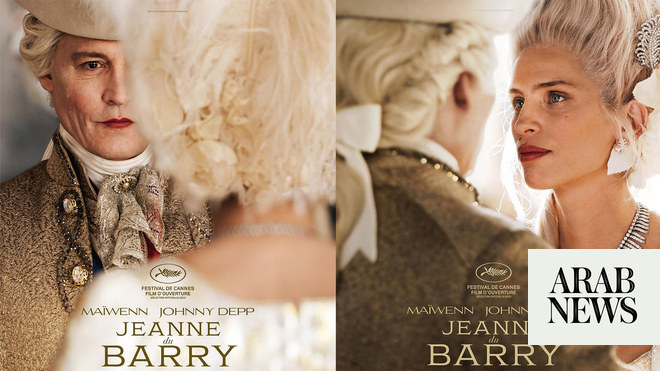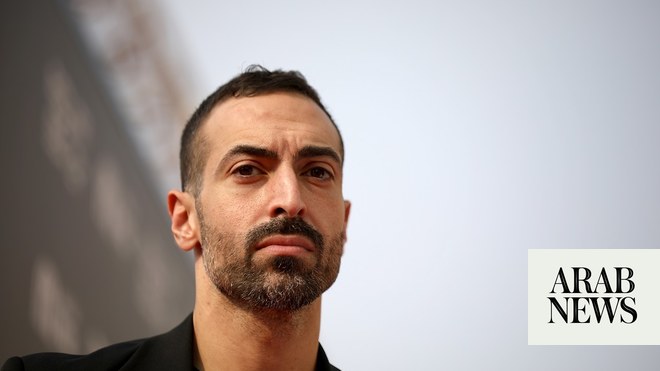
CANNES: Saudi game-changer Mohammed Al-Turki is one of the most well-known producers in the region, having made a name for himself in the glitzy world of Hollywood. On the occasion of the Cannes Film Festival, the Saudi producer was appointed Chairman of the Festival Committee for the upcoming Red Sea International Film Festival which will be held in December in Jeddah. This is a new challenge for the 35-year-old producer, but above all, an umpteenth recognition of his work. The much sought-after producer at the Cannes Film Festival caused quite a stir upon his arrival at the Saudi pavilion and Arab News caught up with him for an exclusive interview.
After these difficult months for the culture sector in the world, due to the pandemic, how does it feel to be here at the Cannes Film Festival?
As you know, it’s one of my favorite festivals, which I have been attending for about 10-11 years. I am here today to represent my country, Saudi Arabia. On the opening night, when I visited the Palais des Festivals, I was introduced as Chairman of the Red Sea Festival committee. It was a moment of immense pride for me. It was great to be at the Palais, with the full support of my country, despite everything that is happening in Saudi Arabia. Vision 2030 is bringing about wonderful cultural shifts. It was also a great moment for the world of cinema, to be at the Palais in the presence of the jury – whose members are a source of Arab pride – with Spike Lee, the Jury President, Tahar Rahim and Maggie Gyllenhaal.
Can we hope to see a Saudi film selected in Cannes’ official competition one day, or even get the Palme d’Or?
Yes, I am convinced of that! We have talented and wonderful young Saudis, and the creative scene in Saudi Arabia is vibrant, authentic and ambitious. We have some Saudi talents arriving this week. Saudi Arabia has already won several awards, notably with Haifaa Al-Mansour at the Venice Film Festival. Haifaa was the first Saudi woman to become a jury member at Cannes. The Lebanese director Nadine Labaki was President of the Jury for “Un certain regard” selection in 2019. We can be proud of many Arabs, but we are still a new industry, and we will continue to evolve. I can refer to examples, such as the Tunisian writer-director, Kaouther ben Hania, with her feature film “The Man Who Sold His Skin” (2020). It’s an incredible movie. Other films are great as well, and this is only the beginning. You will be able to witness the next pivotal steps first hand.
The film industry in Saudi Arabia is indeed going through a moment of a real dynamism. Do you think that over the next few years, Saudi cinema will live its golden age?
Of course, it will live its golden age. Thanks to the support of Saudi Arabia and the MENA region, I think we will see a lot of admissions to the Academy and to the Hollywood Foreign Press Association. I hope that we will win important awards at the international level and succeed in going global.
You are Chairman of the Festival Committee for the upcoming Red Sea Film Festival which is expected to be held next December in Jeddah. How can this event give a new boost to the Kingdom’s flourishing industry?
This dynamism will of course vitalize the flourishing industry by supporting all the local youth. Thanks to this platform, we will be able to travel across the world and allow cinema lovers to discover all of our stories, because as you well know, cinema is a universal form of art, which will allow us to forge deeper connections. It is wonderful that this is happening in the historical city which is located in the magnificent UNESCO heritage site. People will travel to Saudi Arabia and will be able to appreciate the jewels and hidden gems of the Kingdom.
You have worked with big names in cinema, and so far, you’ve mostly addressed a Western audience. Today, would you like to focus on projects that will reach the Eastern public more, and most specifically the Saudi one?
I want to focus on different projects because, personally, I am a filmmaker who enjoys sharing human stories. All of my films deal with important social issues. “Arbitrage,” with Richard Gere, was about the financial crisis; in “At Any Price,” with Zac Effron, it was about the agricultural crisis; then my most recent film, “Crisis,”with Garry Oldman, focused on the opioid crisis, which is now the second leading cause of death in America, after COVID-19.
AlUla is in the spotlight, and many directors around the world do not hide their interest in exploiting this cultural gem. How do you explain such an interest in certain sites in Saudi Arabia?
Together with the Red Sea Festival, the Foundation and the Saudi Film Commission, we are working on a wonderful tax incentive program to get all of these filmmakers to shoot in the Kingdom, and to showcase wonderful places like the AlUla site. A few Hollywood movies have been shot in the Kingdom. The Russo brothers filmed a few scenes of the movie “Cherry” in Saudi Arabia, and it’s a big Apple+ hit. We are currently shooting a movie called “Kandahar” with Gerard Butler in Saudi Arabia, and there are more movies planned, so this is just the beginning of more amazing things to come.
Is it difficult to find experienced actors and talents in Saudi Arabia?
Whether in Saudi Arabia or in the United States, finding the right cast is always a challenge, and I’m sure we’ll have some great talents to show off, because even before movie theaters opened in the country, I was well backed-up in Saudi Arabia; the country was already a breeding ground for creators. Haifaa Al-Mansour presented “Wadjda” all over the world, while there were no movie theaters in Saudi. So, the creative scene has always been unique; it has always been there, and now with the strong support it has behind it, you will be able to witness all of these cultural shifts, and yes, you will see incredible Saudi talents everywhere.












